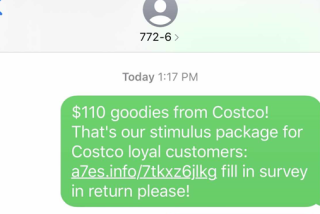FTC Chief Seeks No-Call List to Block Sales Pitches
- Share via
WASHINGTON — Responding to growing concerns about aggressive telemarketing tactics, the chairman of the Federal Trade Commission on Thursday called for the creation of a national “do not call” list that would allow Americans to easily block all unwanted telephone sales pitches.
The proposal was among several ideas unveiled by FTC Chairman Timothy J. Muris, who vowed to make privacy a top priority during his tenure.
Muris also confirmed that he had decided against pursuing tougher online privacy legislation, reversing the policy of his predecessor. Instead, he plans to beef up enforcement of existing laws and introduce more consumer-friendly programs, such as the do-not-call list and assistance for victims of identity theft.
“We need more enforcement, not more laws,” Muris told a gathering of business and privacy group leaders in Cleveland, but he left the door open for future legislation.
To support his new privacy agenda, Muris plans to increase the department’s staffing in privacy-related programs by 50%, to 52 full-time employees, up from 35. Most of the jobs will come from new hires authorized by Congress as part of the FTC’s 2002 budget, a spokeswoman said.
The mandatory, national do-not-call list would replace the voluntary system operated by the Direct Marketing Assn. and federal rules that require consumers to notify each telemarketer individually that they do not wish to be contacted.
About 25 states also have created regional do-not-call lists. A similar bill is on the desk of California Gov. Gray Davis.
“We can do better,” Muris said. He said the FTC also might give consumers a “middle option” that would permit telemarketing calls, but only during certain hours.
“One of the problems with the list has been that it’s all or nothing,” said J. Howard Beales III, who heads the agency’s bureau of consumer protection. The FTC hopes to have the do-not-call list up and running within a year, he said.
Officials at the Direct Marketing Assn., which has administered a do-not-call list for 20 years, questioned the need for government intervention.
“We don’t see that this is a proper role for government,” said H. Robert Wientzen, president of the association. “The private sector has been doing an appropriate job in this area and can continue to do so.”
He said the organization’s do-not-call list has about 4 million telephone numbers, or about 2% of consumers. Direct Marketing Assn. members use the list to weed out names and telephone numbers of consumers who do not wish to be contacted.
The list, which costs about $1.25 million a year to operate, effectively screens out 80% of all unsolicited telemarketing offers, he said.
But privacy advocates say federal oversight is long overdue.
“It’s like having the fox to protect the chickens,” said Jason Catlett, president of Junkbusters, which helps consumers reduce telemarketing calls and junk mail. He said government-sponsored do-not-call lists have had much higher response rates. A state-run list in Connecticut has signed up half the population, he said.
The Direct Marketing Assn. also has been criticized for failing to publicize its do-not-call list and making it too difficult for consumers to sign up. Consumers must mail a letter to the association and may not sign up via telephone. Those wishing to sign up via the Internet must pay $5 for five years.
More to Read
Inside the business of entertainment
The Wide Shot brings you news, analysis and insights on everything from streaming wars to production — and what it all means for the future.
You may occasionally receive promotional content from the Los Angeles Times.










